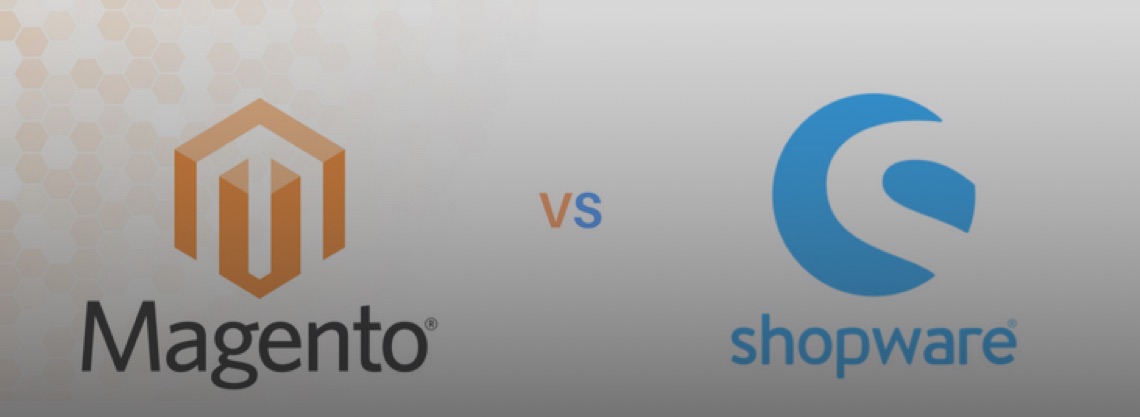The e-commerce market is vast and full of competition. As a result, customers are becoming more demanding, expecting quick responses and excellent service. You can hire top managers to provide the best customer experience, but they still need a reliable and easy-to-use tool to analyze, organize, and effectively utilize data.
A Customer Relationship Management (CRM) platform is the best tool for strengthening customer relationships. Today, we’ll explain a CRM, the different types available, and the benefits it can bring to your business. We will also tell you about popular CRMs and explain how to deal with problems that may arise along the way. Spoiler: you can always contact Vilmate to solve any new and old CRM issues.
E-Commerce CRM: Essential Information
A CRM is software that helps you store information about current customers and gather data on potential ones. All the important details are kept in one place, on a single platform, giving businesses a clear view of their operations.
There are different types of CRM systems designed for specific business needs:
- Operational CRM: Streamlines and automates business processes like sales, marketing, and customer service.
- Analytical CRM: Analyzes customer data to improve decision-making. It offers tools for segmentation, analysis, and predicting customer behavior.
- Collaborative CRM: Promotes teamwork and information sharing between departments (sales, marketing, and customer service) to enhance customer satisfaction.
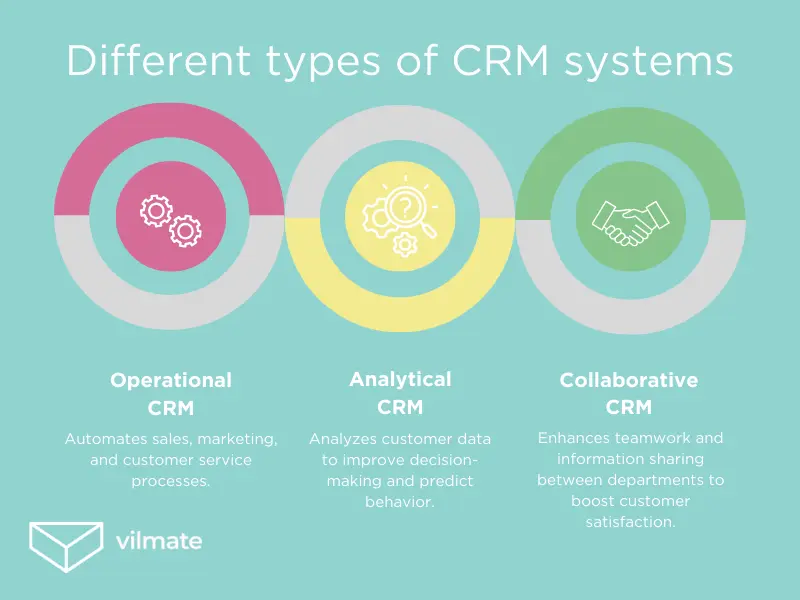
Each type of CRM solves different tasks based on the size and needs of the business. No matter which system you choose, it will bring significant benefits to your company.
Advantages of CRM for Business
Traditional CRMs that require manual customer data entry are now outdated for modern businesses. E-commerce-specific systems automatically collect data by integrating with your online store.
A Capterra study found that effective CRM systems boosted sales revenue in 45% of companies. How does this happen? Let’s explore the key features that modern tools provide.
1. Complete Customer History
A CRM system lets you store and analyze all customer interactions in one place. You can gather information about purchases, preferences, support requests, and communication history across various channels like email, phone, social media, and messaging apps. With a detailed view of customer data, you get several benefits:
- Personalization: CRM helps you offer more relevant products and services based on a customer’s past purchases and interests.
- Quick Issue Resolution: Support staff can resolve customer requests faster and more effectively, as all necessary information is available without asking repeated questions.
- Behavior Prediction: By analyzing purchase and interaction history, CRM can forecast which products a customer might be interested in, allowing you to suggest relevant items proactively.
Overall, these advantages underscore the importance of an effective CRM for business. There are also other key aspects to consider.
2. Personalized Email Marketing
Effective email marketing is a major feature of modern CRM systems. These systems help you create and send personalized emails based on customer behavior and purchase history. CRM systems simplify these tasks:
- Audience Segmentation: CRM analyzes customer data and groups them based on criteria like purchase frequency, spending, and product interest. This allows for targeted campaigns.
- Automated Triggered Emails: CRM can automatically send emails based on customer actions. For instance, if a customer leaves items in their cart without buying, the system sends reminders with personalized offers.
- Personalized Recommendations: Using data on previous purchases, CRM can suggest products or services that match a customer’s interests.
- Performance Analysis: CRM tracks email opens, link clicks, and other interactions to help improve future campaigns.
These features boost customer loyalty through personalized emails and enhance conversion rates. According to Campaign Monitor, automated email marketing can generate 320% more revenue than non-automated campaigns.
3. Automating Routine Tasks
Automation is a crucial feature of modern CRM systems. It helps free employees from repetitive tasks, allowing them to focus on more strategic work.
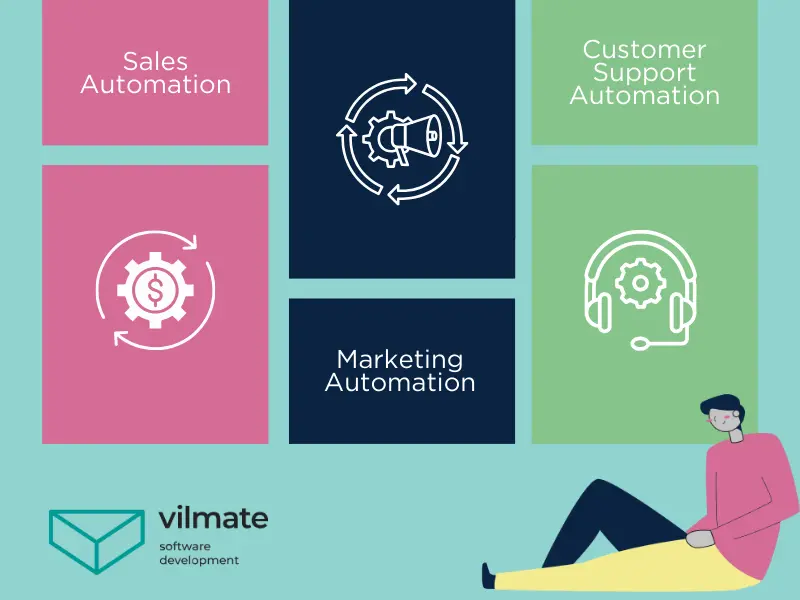
Key aspects of automation include:
- Sales Automation: CRM systems can automatically assign leads to sales managers, send reminders for follow-up actions, update deal statuses, and generate progress reports. This speeds up the sales process and reduces errors.
- Marketing Automation: CRM systems can launch marketing campaigns based on customer behavior. For example, after a customer registers on a website, the CRM might send a welcome email and later remind them about products they are interested in.
- Customer Support Automation: CRM can create support tickets, assign them to team members, track progress, and update customers on the status of their issues.
By automating these tasks, you reduce the manual work for employees and improve the customer experience with faster and more personalized service.
4. Tracking Customer Satisfaction
CRM systems gather data that helps you track how well your marketing strategies are working, find the best ways to attract customers and identify your most popular products and services. Additionally, CRM systems can measure customer satisfaction. For example, they can automatically send customer surveys and questionnaires after interactions or purchases to collect feedback. The system also analyzes positive and negative reviews to spot areas that need improvement.
5. Scaling Your Business
Every business owner dreams of growing their company. However, handling customer data and managing various business operations can make expansion seem challenging. CRM systems for e-commerce offer a significant advantage by saving you time. They provide quick access to valuable data about current and potential customers with just a few clicks.
This efficiency boosts productivity and helps increase sales. When resources are invested wisely, scaling your business becomes more manageable and less complicated. A CRM system enables you to meet customer expectations and strengthen your brand’s market position.
With a clear understanding of your customers’ needs, you can more easily identify where to expand and what steps to take to succeed. This lets you focus on effective strategies and actions, leading to successful business growth.
We’ve covered the benefits of using a CRM for your business. Now, let’s move on to the most exciting part: reviewing the best CRM systems for e-commerce.
Which E-Commerce CRM is Right for Your Business?
Every business has unique needs and marketing strategies, so no single CRM fits all companies. It’s also important to ensure the CRM integrates smoothly with your CMS (content management system). However, we will look at some of the most popular and successful CRM options you might consider for integration.
1. Salesforce CRM
Salesforce is one of the most popular CRM systems in e-commerce. It offers various features for businesses of all sizes, including tools for managing sales, marketing, and customer service.
Salesforce also integrates artificial intelligence through Salesforce Einstein. Key features of Salesforce Einstein include:
- Predictive Analytics: Einstein analyzes data to predict future trends, such as the chance of closing a deal or customer churn.
- Natural Language Processing (NLP): Einstein can analyze text from emails and social media to provide useful insights and intuitive reports.
- Personalized Customer Interaction: Einstein helps personalize interactions based on a customer’s past actions and preferences, which improves satisfaction and loyalty.
While Salesforce is a highly advanced CRM and one of the pioneers in the market, its age can present challenges with integration and system use. Older platforms may have legacy systems and outdated interfaces that can complicate integration with newer technologies. As a result, companies might face difficulties in adapting and fully leveraging the platform’s capabilities.
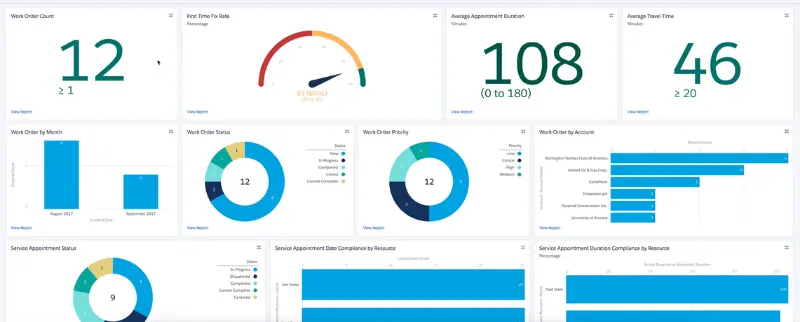
However, the effort is worth it. At Vilmate, we have experts who specialize in Salesforce, so you can always contact us for assistance. We can help with any issues related to this CRM, so feel free to consider it for your needs.
2. Zoho CRM
Zoho CRM is a popular choice for online business owners. It offers a broad range of features and integrations. The system makes managing the sales funnel and tracking customer interactions easy.
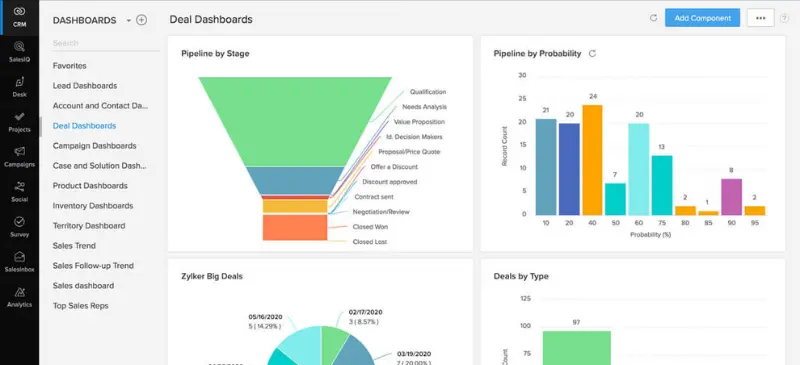
Zoho CRM provides clear reports and strong analytics. It also helps automate marketing strategies. With Zoho, you can gain valuable insights into your business and make better decisions based on the data you collect.
3. HubSpot CRM
HubSpot CRM is a great option for e-commerce businesses, offering many features for free. It’s perfect for those new to CRM who aren’t sure which features are essential.
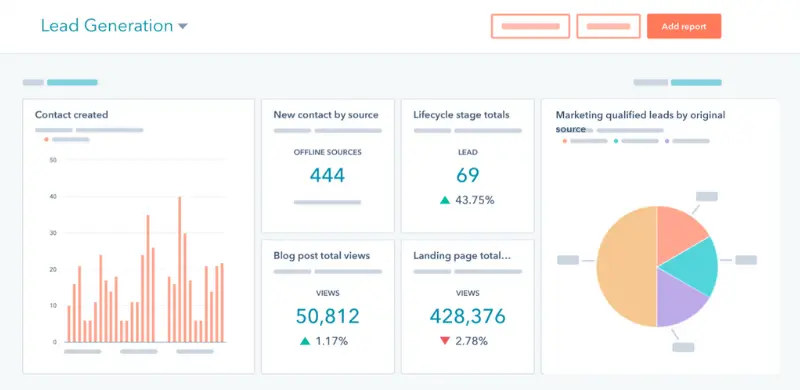
HubSpot makes it easy to manage contacts and deals, solve tasks efficiently, and use an integrated sales funnel. It also provides useful marketing automation tools and email templates, along with a simple email editor.
4. Less Annoying CRM
As its name suggests, Less Annoying CRM is a simple and user-friendly platform for small businesses. It has an intuitive interface and offers helpful tutorials, making it a good choice for beginners.
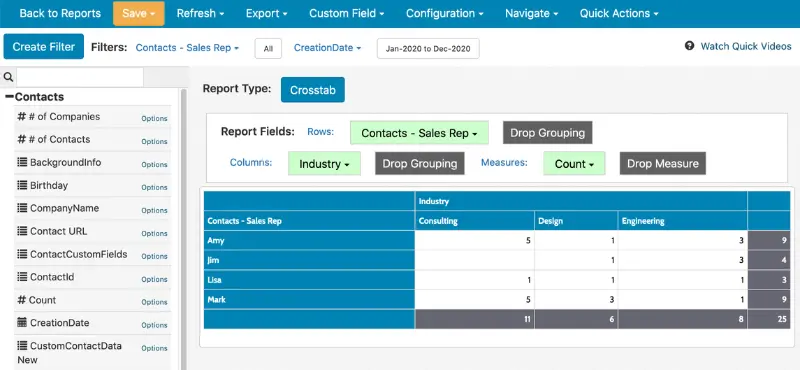
With Less Annoying CRM, you can track leads, manage contacts, and handle your sales funnel. However, if you run a larger business, you might want to look at more advanced options like Salesforce or Zoho. If you need help with these systems, Vilmate specialists are always available.
5. Pipedrive
Over 100,000 companies trust Pipedrive in Europe and the US. It provides excellent sales funnel visualization, giving you a clear view of deals and helping you make better decisions. Pipedrive also includes many features for forecasting and reporting so that you can monitor and improve your team’s performance.
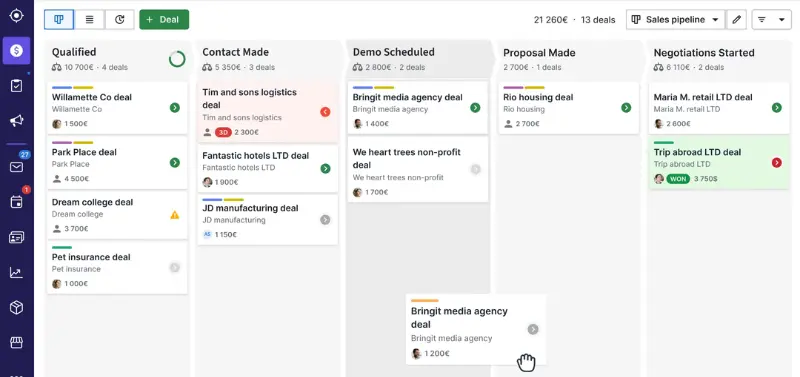
We strongly recommend looking at platforms that already incorporate artificial intelligence. AI is rapidly developing and affecting many areas of our lives. Companies that use AI in their business today will have a big advantage over their competitors. However, if you’re new to CRM, it’s a good idea to start with simpler and even free solutions before moving on to more advanced options.
How to Integrate CRM into Your Business
Do you have an e-commerce site and want to integrate it with a new CRM? Here are some tips to help you get started:
- Create a Clear Plan: To make your CRM effective, analyze your business processes and how you currently interact with customers. Decide on the user experience you want to provide and your marketing strategies. Identify which processes you want to automate and improve, such as collecting customer information, generating leads, or using a chatbot for communication.
- Train Your Staff: Your sales managers need to understand how to use the CRM. Provide practical training so they can learn by doing. Organize interactive sessions and demonstrations to show them how to handle key tasks, like managing deals or tracking customer interactions. Ensure they can access support resources, such as documentation and FAQs. Set up a support service to help with issues and answer questions during the transition.
- Prepare for Integration: To successfully integrate your CRM with your e-commerce systems, find a partner with both technical expertise and a good understanding of your business needs.
You don’t have to search far—contact Vilmate. We can help you integrate the system with your online store and develop an effective strategy for its ongoing use.
Conclusion
Integrating a CRM system into your e-commerce business offers numerous benefits, from enhancing customer interactions to automating routine tasks and providing valuable insights. When choosing a CRM, selecting one that fits your business needs and integrates smoothly with your existing systems is crucial. Start by creating a clear plan, training your staff effectively, and preparing for a smooth integration process. You can significantly improve your business operations and gain a competitive edge with the right approach and tools. If you need expert help with CRM integration and strategy, Vilmate is here to support you and ensure you get the most out of your CRM investment.




